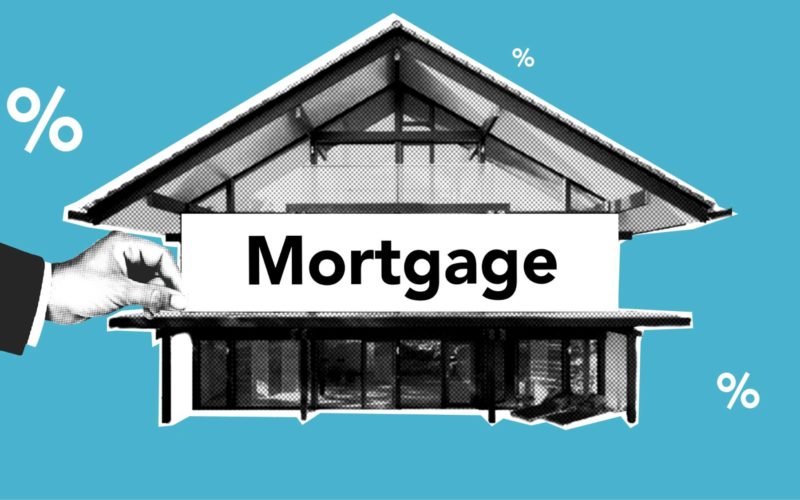Purchasing your first home is a monumental milestone that many people aspire to achieve. The journey to homeownership, however, can seem daunting, especially in competitive markets like the North Country, where homes can receive up to 15 offers in a single week. Despite these challenges, buying a home is not an unattainable dream. With the right knowledge about financing and diligent financial management, you can turn your homeownership dream into a reality.
This article provides eight tips to help you navigate the financial landscape and secure your first home.
1. Improve Your Credit Score
Your credit score is usually a key player in determining the terms of your loan. A higher credit score often means banks can offer lower interest rates, which can save you thousands of dollars over the life of your loan. Improve your credit score by paying off existing debts and avoiding new ones. Ensure that you pay all your bills on time, as late payments can negatively impact your score. Regularly check your credit report for errors and dispute any inaccuracies. Building a strong credit history requires time and discipline, but the financial benefits are well worth the effort.
2. Secure a Bank Loan
Securing a bank loan is often a crucial step, particularly in regions like the North Country, where home prices are on the rise. A bank loan can provide the necessary funds to make your home purchase possible. North Country Savings Bank, for instance, offers mortgage options even for individuals with poor credit scores. This can be highly beneficial, making homeownership accessible even if your credit history isn’t quite up to the mark. The process involves applying for a mortgage, undergoing a credit check, and providing financial documents to demonstrate your ability to repay the loan. By securing a bank loan, you can bridge the gap between your savings and the home price.
3. Save for a Down Payment
One of your goals should be to make a substantial down payment. Why? It can reduce the amount you need to borrow, resulting in lower monthly payments. Aim to save at least 20% of the home’s purchase price. This not only reduces your loan amount but also helps you avoid paying for private mortgage insurance (PMI). Start by creating a dedicated savings account for your down payment and contribute to it regularly. Cut unnecessary expenses and consider increasing your income through side jobs or other means. The larger your down payment, the more financially secure you will be in the long run.
4. Get Pre-Approved for a Mortgage
Getting pre-approved for a mortgage is a crucial step in the home-buying process. Pre-approval enables you to understand how much you can afford to spend on a home, which ultimately helps you narrow down your options. It also demonstrates to sellers that you are a serious buyer, which can give you an edge in competitive markets. The pre-approval process involves submitting financial documents such as tax returns, pay stubs, and bank statements to a lender. Following this, the lender will determine the amount they can lend you based on your financial situation. With a pre-approval letter in hand, you can confidently make offers on homes within your budget.
5. Budget for Additional Costs
Buying a home involves more than just the purchase price. There are additional costs that you need to budget for to avoid financial surprises. These costs can include closing fees, which cover the legal and administrative expenses associated with transferring ownership. Moving expenses can also add up, especially if you hire professional movers. You should also budget for home inspections to ensure the property is in good condition. Repairs and maintenance costs are inevitable, so having a reserve fund can help you manage these expenses without straining your finances. By preparing for these additional costs, you can ensure a smoother transition to homeownership.
6. Keep Your Financial Records Organized
Lenders will review your financial history in detail before approving your mortgage. Keeping your financial records organized can streamline the application process and improve your chances of securing a loan. Start by gathering documents such as bank statements, tax returns, pay stubs, and records of any other income sources. Create a system for organizing these documents, whether digital or physical. Being able to quickly provide accurate financial information demonstrates your reliability and can speed up the approval process. Organized financial records also help you understand your financial situation better and make informed decisions throughout the home-buying process.
7. Avoid Major Purchases Before Buying
Avoid making major purchases before buying a home, as they can affect your credit score and debt-to-income ratio. Big purchases, such as a new car or expensive furniture, can increase your debt and make it harder for you to qualify for a mortgage. Lenders look at your financial stability and ability to repay the loan, so maintaining a low debt profile is crucial. Major purchases can also reduce your savings, which you might need for your down payment or other home-buying expenses. By postponing large expenditures until after you secure your home, you can improve your financial standing and increase your chances of loan approval.
8. Seek Professional Advice
Navigating the homebuying process can be complex, so seeking professional advice can be invaluable. Real estate professionals, such as agents and brokers, can provide insights into the housing market and help you find properties that meet your needs. Financial advisors or even banks can offer guidance on budgeting, saving, and choosing the right loan options. Mortgage brokers can assist in finding the best mortgage rates and terms available. By leveraging the expertise of professionals, you can make more informed decisions and avoid common pitfalls.
Conclusion
Financing your first home might seem like a very complex and intimidating process. However, it is entirely achievable with the right strategies. By following all of these tips, you can pave the way to successful homeownership. Each of these steps requires careful planning and disciplined financial management, but the reward of owning your own home is well worth the effort. With these tips, you are well on your way to acquiring the key to your dream home!












